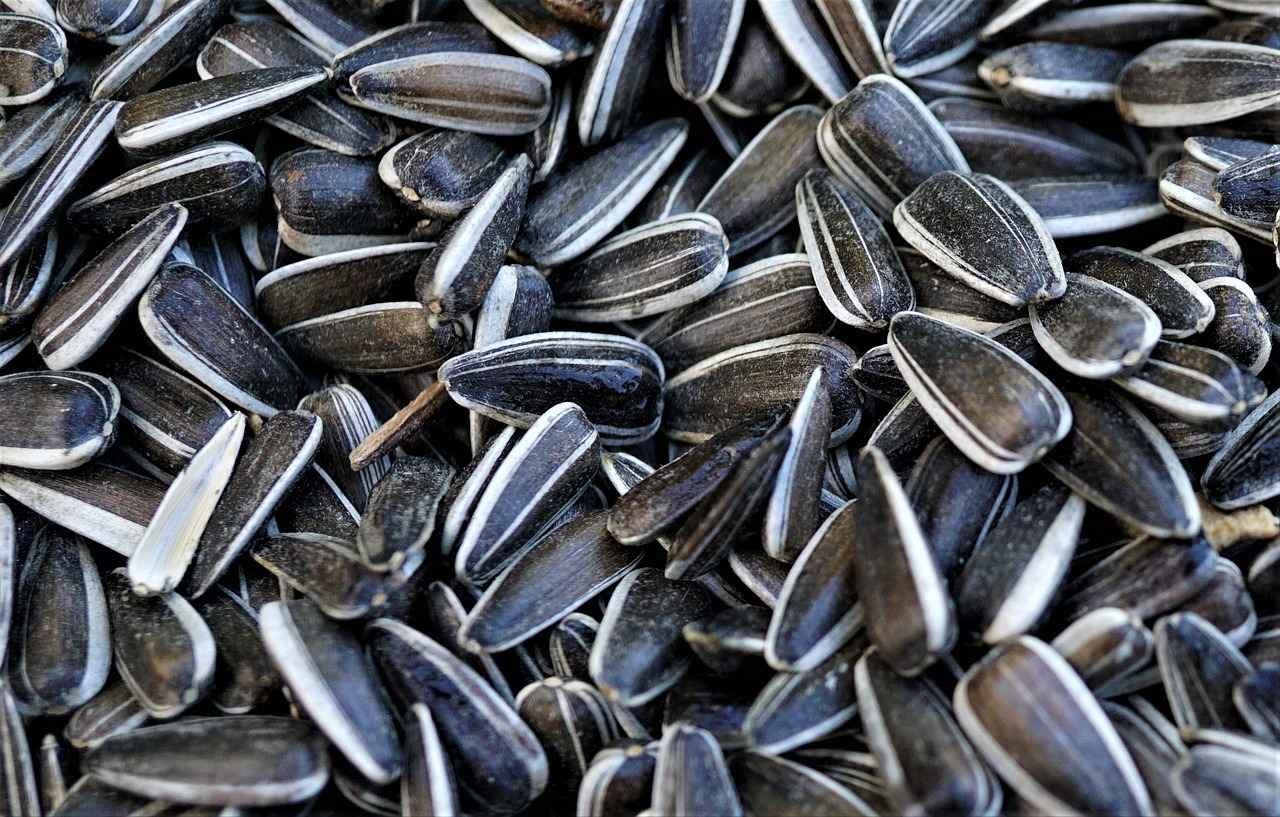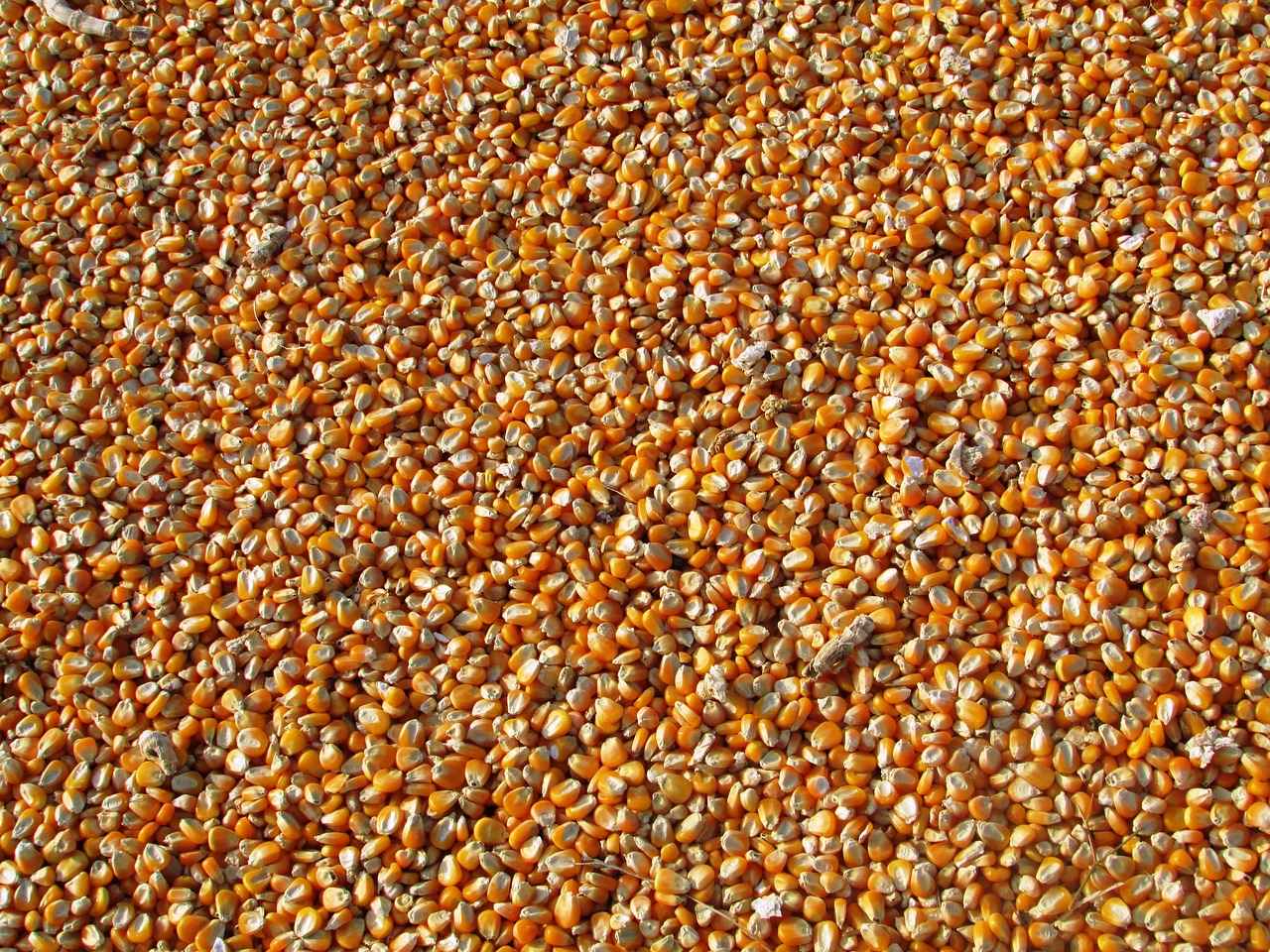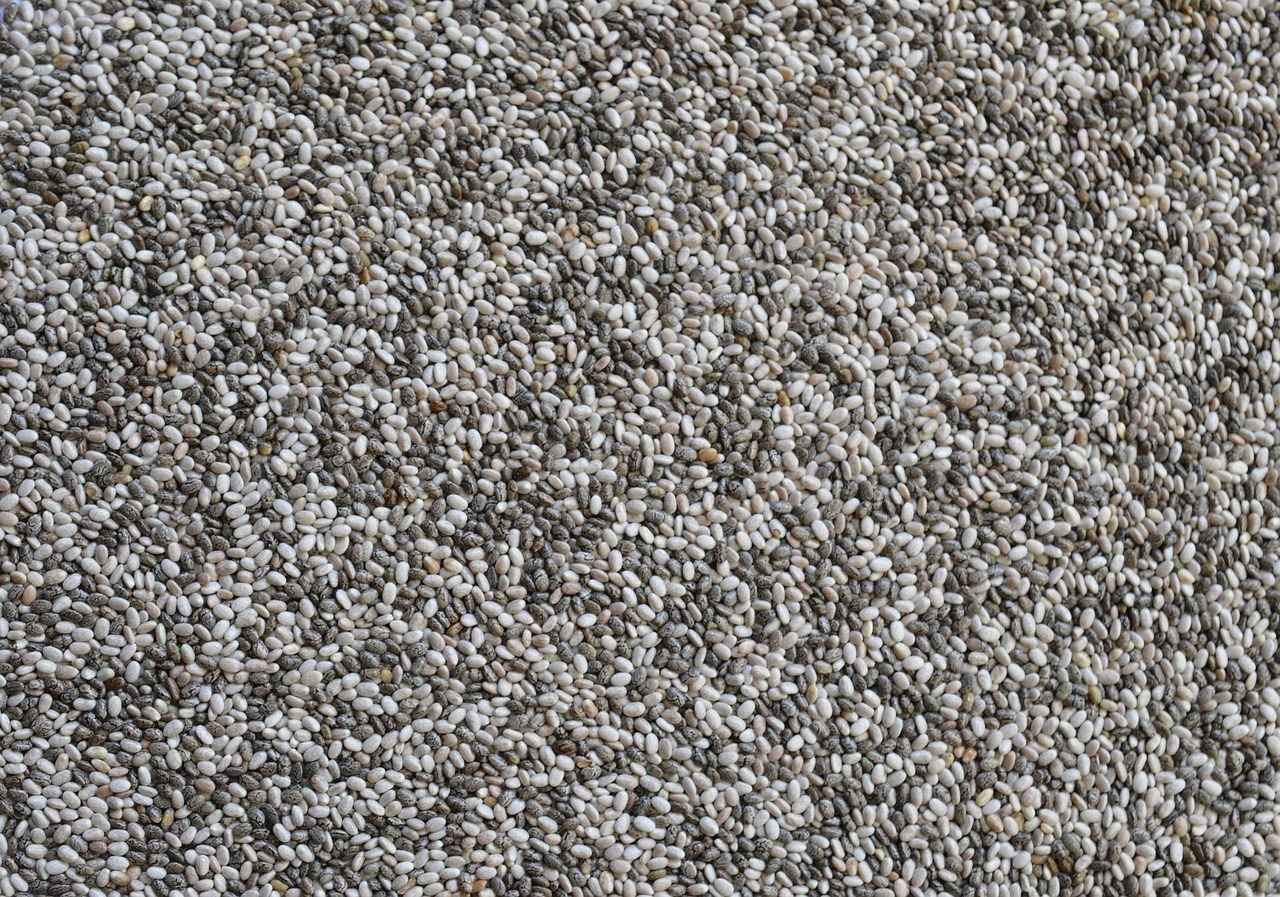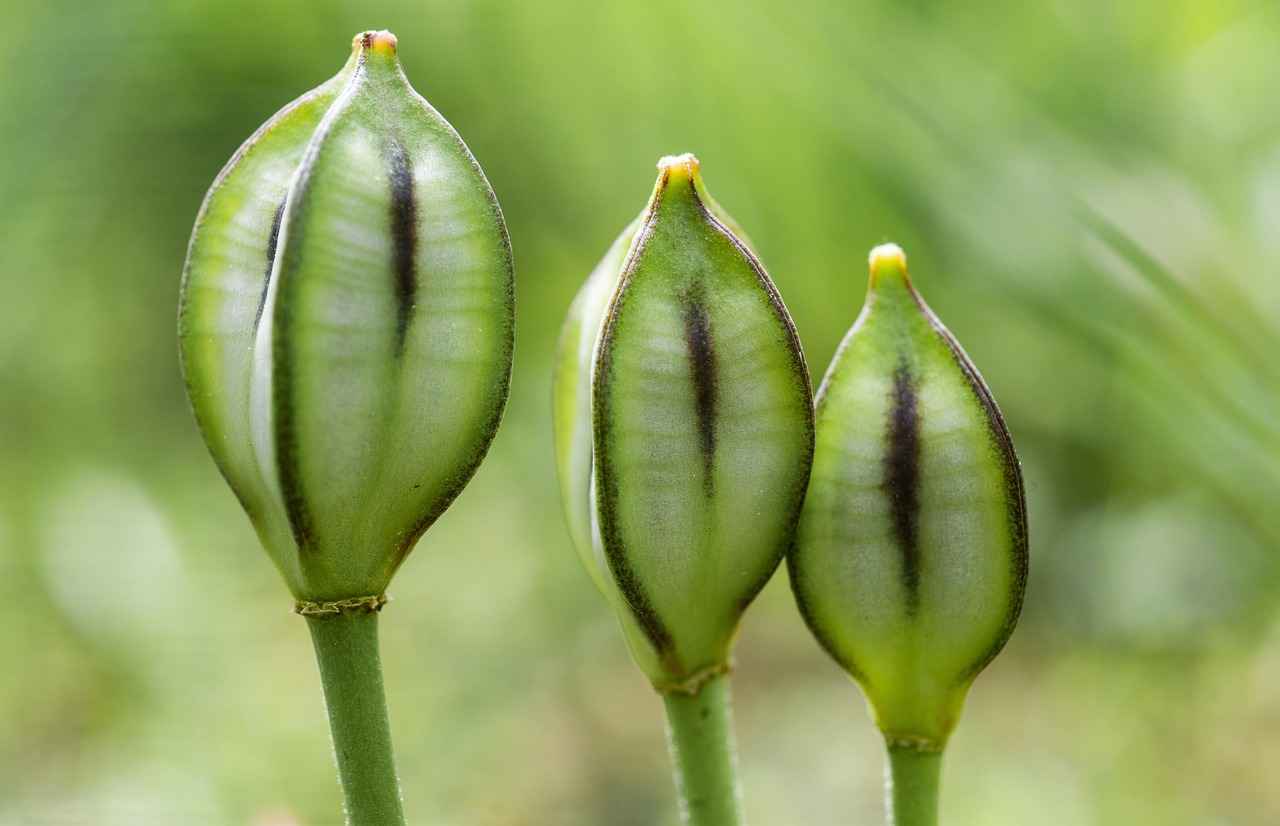This article delves into the nutritional profile of chia seeds, examining their numerous health benefits, culinary uses, and methods for incorporation into a balanced diet.
What Are Chia Seeds?
Chia seeds are small, black or white seeds derived from the Salvia hispanica plant, which is native to Mexico and Guatemala. These tiny seeds have surged in popularity due to their impressive health benefits and versatility in various culinary applications.
Why Are Chia Seeds Considered Superfoods?
Chia seeds are often labeled as superfoods because they are packed with essential nutrients. Their high content of vitamins, minerals, and antioxidants contributes significantly to overall health and wellness.
What Nutrients Are Found in Chia Seeds?
- Omega-3 Fatty Acids: Chia seeds are one of the richest plant-based sources of omega-3 fatty acids, which are essential for heart health.
- High Fiber Content: They contain a substantial amount of fiber, promoting digestive health and aiding in weight management.
- Protein: Chia seeds provide a good source of protein, making them a great addition to vegetarian and vegan diets.
- Micronutrients: They are also rich in calcium, magnesium, and phosphorus, supporting bone health and overall bodily functions.
How Do Chia Seeds Compare to Other Seeds?
When compared to other seeds like flaxseeds and hemp seeds, chia seeds stand out due to their unique nutrient profile, particularly their high antioxidant content and versatility in culinary applications.
Chia Seeds vs. Flaxseeds: Nutritional Differences
While both chia seeds and flaxseeds offer health benefits, chia seeds provide a higher fiber content and a more balanced omega-3 to omega-6 ratio, making them a favorable choice for many diets.
Chia Seeds vs. Hemp Seeds: Which Is Better?
Although hemp seeds are rich in protein and healthy fats, chia seeds excel in fiber and omega-3 content, making them particularly beneficial for those focusing on digestive health.
How to Incorporate Chia Seeds Into Your Diet?
Integrating chia seeds into your diet is simple and versatile. Here are some popular methods:
- In Smoothies: Blend chia seeds into your smoothies for an extra nutritional boost.
- Baked Goods: Add them to muffins, bread, or pancakes to enhance texture and nutrition.
- Chia Seed Pudding: Combine chia seeds with milk or a dairy alternative, let them soak overnight, and enjoy a delicious snack.
What Are the Health Benefits of Chia Seeds?
Chia seeds offer numerous health benefits, including:
- Improved Heart Health: Regular consumption can lower cholesterol levels and reduce blood pressure.
- Enhanced Digestion: Their high fiber content aids in digestion and promotes gut health.
- Weight Management: Chia seeds can help control appetite, making them beneficial for weight loss.
Heart Health Benefits of Chia Seeds
Chia seeds support heart health by lowering cholesterol levels and improving cardiovascular function, thanks to their high omega-3 fatty acid content.
Chia Seeds and Weight Management
The ability of chia seeds to absorb water helps create a feeling of fullness, which can assist in appetite control and weight management efforts.

What Are Chia Seeds?
Chia seeds are tiny, nutrient-dense seeds that come from the Salvia hispanica plant, which is native to regions of Mexico and Guatemala. Over the years, these seeds have gained immense popularity due to their remarkable health benefits and versatility in culinary applications. They can be easily incorporated into a variety of dishes, making them a staple for health-conscious individuals.
Chia seeds are small, oval-shaped seeds that are typically black or white. These seeds are known for their ability to absorb water, swelling up to ten times their original size when soaked. This unique property not only enhances their texture but also contributes to their health benefits. Rich in nutrients, chia seeds are an excellent source of omega-3 fatty acids, fiber, and protein, making them a valuable addition to any diet.
Chia seeds are often labeled as superfoods due to their exceptional nutrient density. They are packed with essential vitamins, minerals, and antioxidants. This nutrient profile supports overall health and wellness, making them a popular choice among nutritionists and health enthusiasts alike.
- Omega-3 Fatty Acids: Chia seeds are one of the best plant-based sources, crucial for heart health.
- Fiber: They are loaded with fiber, aiding in digestion and promoting a feeling of fullness.
- Protein: Chia seeds provide a plant-based protein boost, beneficial for muscle repair and growth.
- Micronutrients: They contain essential minerals like calcium, magnesium, and phosphorus.
When compared to other seeds such as flaxseeds and hemp seeds, chia seeds stand out due to their unique nutrient profile. They are particularly noted for their high antioxidant content and versatility in culinary applications.
Incorporating chia seeds into your diet is simple and versatile. Here are some practical ways to enjoy them:
- Chia Seed Pudding: Mix chia seeds with milk (or a dairy alternative) and let them soak overnight for a delicious snack.
- In Smoothies: Blend chia seeds into your favorite smoothies for added nutrition without altering the flavor.
- Baked Goods: Incorporate chia seeds into muffins, bread, or energy bars for a nutrient boost.
Chia seeds offer numerous health benefits, making them a valuable addition to a balanced diet. Regular consumption can lead to:
- Improved Heart Health: Chia seeds can lower cholesterol levels and reduce blood pressure.
- Enhanced Digestion: The high fiber content promotes digestive health and regularity.
- Weight Management: Their ability to absorb water helps control appetite and supports weight loss efforts.
In conclusion, chia seeds are a powerhouse of nutrients that can easily be integrated into your daily meals. Their health benefits and versatility make them an excellent choice for anyone looking to enhance their diet.

Why Are Chia Seeds Considered Superfoods?
Chia seeds have gained immense popularity in recent years, and for good reason. These tiny seeds, derived from the Salvia hispanica plant, are not only versatile but also packed with nutrients that contribute to overall health. But what exactly makes chia seeds so special and deserving of the superfood label?
Chia seeds are renowned for their exceptional nutrient density. They are a rich source of essential nutrients, including:
- Omega-3 Fatty Acids: Chia seeds contain alpha-linolenic acid (ALA), a type of omega-3 fatty acid that is crucial for heart health.
- Dietary Fiber: With a staggering 34 grams of fiber per 100 grams, chia seeds support digestive health and help regulate blood sugar levels.
- Protein: They offer a complete source of protein, containing all nine essential amino acids.
- Vitamins and Minerals: Chia seeds are rich in calcium, magnesium, and phosphorus, which are vital for bone health.
- Antioxidants: These seeds are loaded with antioxidants that help combat oxidative stress and inflammation.
The health benefits of chia seeds are numerous and well-documented. Regular consumption can lead to:
- Improved Heart Health: The omega-3 fatty acids in chia seeds can lower cholesterol levels and reduce the risk of cardiovascular diseases.
- Enhanced Digestive Function: Their high fiber content promotes a healthy gut by aiding digestion and preventing constipation.
- Weight Management: Chia seeds can absorb up to 12 times their weight in water, helping you feel fuller for longer and reducing overall calorie intake.
Absolutely! Chia seeds are incredibly versatile and can be added to a variety of dishes:
- Mix them into s smoothies for an added nutritional boost.
- Use them in baked goods such as muffins and breads.
- Top your yogurt or salads with chia seeds for added crunch and nutrition.
- Make chia seed pudding by soaking them in milk or a dairy alternative overnight.
While there are many superfoods available, chia seeds stand out due to their unique combination of nutrients. Unlike flaxseeds, they do not require grinding to unlock their benefits, making them more convenient. Compared to hemp seeds, chia seeds offer a higher fiber content, making them more beneficial for digestive health.
In summary, chia seeds are more than just a trend; they are a nutritional powerhouse that can significantly enhance your health. With their impressive nutrient profile and numerous health benefits, incorporating chia seeds into your diet is a simple yet effective way to support your overall wellness.

What Nutrients Are Found in Chia Seeds?
Chia seeds, often hailed as a superfood, are not only small in size but also packed with an impressive array of nutrients. These tiny seeds, derived from the Salvia hispanica plant, have gained immense popularity in recent years due to their numerous health benefits and versatility in various culinary applications.
Chia seeds are a rich source of omega-3 fatty acids, fiber, protein, and various micronutrients, including calcium, magnesium, and phosphorus. This remarkable nutritional profile makes them an excellent addition to any diet.
- Omega-3 Fatty Acids: Chia seeds are one of the best plant-based sources of omega-3 fatty acids, specifically alpha-linolenic acid (ALA). These essential fats are known for their role in promoting heart health, reducing inflammation, and supporting brain function.
- High Fiber Content: With approximately 34 grams of fiber per 100 grams, chia seeds are an excellent source of dietary fiber. This high fiber content aids digestion, helps regulate blood sugar levels, and contributes to a feeling of fullness, which can assist in weight management.
- Protein: Chia seeds contain about 17 grams of protein per 100 grams. This makes them a fantastic option for vegetarians and vegans looking to boost their protein intake without consuming animal products.
- Vitamins and Minerals: Chia seeds are loaded with essential micronutrients, including calcium (about 631 mg per 100 grams), magnesium (approximately 335 mg), and phosphorus (around 860 mg). These minerals are vital for bone health, muscle function, and energy production.
- Antioxidants: Chia seeds are rich in antioxidants, which help combat oxidative stress and inflammation in the body. Antioxidants play a crucial role in protecting cells from damage caused by free radicals.
Incorporating chia seeds into your diet is not only easy but also beneficial. They can be added to smoothies, baked goods, or used as a topping for yogurt and salads. Their ability to absorb liquid and form a gel-like consistency makes them ideal for creating chia seed pudding, a popular and nutritious snack. Simply mix chia seeds with your choice of milk or dairy alternative, let them soak overnight, and enjoy a delicious treat.
Chia seeds are classified as superfoods due to their exceptional nutrient density. They offer a well-rounded profile of essential vitamins, minerals, and antioxidants, making them a valuable addition to a balanced diet. Their versatility allows for easy incorporation into various dishes, enhancing both nutrition and flavor.
When compared to other seeds like flaxseeds and hemp seeds, chia seeds stand out due to their unique nutrient profile. While flaxseeds are also rich in omega-3 fatty acids, chia seeds provide a more balanced omega-3 to omega-6 ratio. Additionally, chia seeds offer higher fiber content, making them a favorable choice for digestive health.
Regular consumption of chia seeds can support overall health in several ways. They contribute to improved heart health by lowering cholesterol levels and reducing blood pressure. Their high fiber content promotes healthy digestion and may aid in weight management by enhancing feelings of fullness.
In conclusion, chia seeds are a powerhouse of nutrients that can significantly benefit your health. Their impressive profile of omega-3 fatty acids, fiber, protein, vitamins, and minerals makes them a valuable addition to any diet. Whether you’re looking to improve your heart health, manage your weight, or simply add more nutrients to your meals, chia seeds are an excellent choice.
Omega-3 Fatty Acids: The Heart-Healthy Component
When it comes to heart health, omega-3 fatty acids play a crucial role, and chia seeds are among the top plant-based sources of these essential nutrients. These tiny seeds, derived from the Salvia hispanica plant, not only provide a rich source of omega-3s but also offer a multitude of health benefits that can enhance overall well-being.
Omega-3 fatty acids are a type of polyunsaturated fat that is vital for various bodily functions, including brain health, inflammation reduction, and heart health. They are categorized into three main types: ALA (alpha-linolenic acid), EPA (eicosapentaenoic acid), and DHA (docosahexaenoic acid). While EPA and DHA are primarily found in fish and algae, ALA is abundant in plant sources like chia seeds.
Chia seeds are particularly beneficial for heart health due to their high content of ALA. Regular consumption of these seeds can lead to several positive outcomes:
- Lower Cholesterol Levels: Studies have shown that omega-3 fatty acids can help reduce levels of LDL cholesterol, which is often referred to as “bad” cholesterol.
- Blood Pressure Regulation: Incorporating chia seeds into your diet may assist in maintaining healthy blood pressure levels, which is crucial for reducing the risk of heart disease.
- Improved Cardiovascular Function: Omega-3 fatty acids support the health of blood vessels, promoting better circulation and reducing the risk of heart-related issues.
Chronic inflammation is a significant contributor to various health problems, including heart disease, diabetes, and arthritis. Omega-3 fatty acids, particularly those found in chia seeds, have been shown to:
- Reduce Inflammatory Markers: Regular intake of omega-3s can lower levels of inflammatory markers in the body, helping to mitigate the effects of chronic inflammation.
- Support Joint Health: For individuals suffering from arthritis or joint pain, omega-3 fatty acids may provide relief by reducing inflammation in the joints.
Integrating chia seeds into your diet is simple and versatile. Here are some practical ways to enjoy their heart-healthy benefits:
- Add to Smoothies: Blend chia seeds into your favorite smoothie for a nutrient boost.
- Use in Baking: Incorporate chia seeds into baked goods like muffins or breads for added fiber and omega-3s.
- Top Your Meals: Sprinkle chia seeds on salads, yogurt, or oatmeal for an extra crunch and nutritional enhancement.
While chia seeds are generally safe for most people, it’s essential to consume them in moderation. Due to their high fiber content, excessive intake may lead to digestive issues. It’s also advisable to drink plenty of water when consuming chia seeds, as they can absorb up to 12 times their weight in liquid.
In conclusion, chia seeds are a powerhouse of omega-3 fatty acids that can significantly contribute to heart health and reduce inflammation in the body. By incorporating these tiny seeds into your daily diet, you can harness their numerous health benefits and support your overall well-being.
High Fiber Content: Aiding Digestion
Chia seeds, often hailed as a superfood, offer a myriad of health benefits, particularly due to their impressive high fiber content. This attribute plays a crucial role in promoting healthy digestion, regulating blood sugar levels, and supporting weight management efforts.
The high fiber content in chia seeds is primarily composed of soluble fiber, which absorbs water and forms a gel-like substance in the digestive tract. This process aids in slowing down digestion and enhancing nutrient absorption. As a result, chia seeds can help prevent constipation and promote regular bowel movements.
Incorporating chia seeds into your diet may also assist in regulating blood sugar levels. The soluble fiber in chia seeds slows the conversion of carbohydrates into sugar, leading to a more gradual increase in blood glucose. This is particularly beneficial for individuals with diabetes or those looking to maintain stable energy levels throughout the day.
One of the standout benefits of chia seeds is their ability to promote a feeling of fullness. When chia seeds are consumed, they can absorb up to 12 times their weight in water, expanding in the stomach. This expansion not only contributes to satiety but also helps curb cravings and reduce overall calorie intake, making chia seeds a valuable ally in weight management.
- Smoothies: Add a tablespoon of chia seeds to your favorite smoothie for an extra nutrient boost.
- Yogurt Toppings: Sprinkle chia seeds over yogurt or oatmeal for added texture and health benefits.
- Baked Goods: Incorporate chia seeds into muffins, breads, or pancakes for a nutritious twist.
- Chia Pudding: Mix chia seeds with milk or a dairy alternative and let them soak overnight for a delicious pudding.
Beyond aiding digestion, chia seeds are packed with essential nutrients, including omega-3 fatty acids, protein, and various vitamins and minerals. Regular consumption can support heart health, enhance digestive function, and even assist in weight management.
In conclusion, the high fiber content of chia seeds makes them a powerful addition to a balanced diet. By promoting healthy digestion, regulating blood sugar levels, and contributing to a feeling of fullness, chia seeds can play a significant role in supporting overall health and wellness.

How Do Chia Seeds Compare to Other Seeds?
Chia seeds, known for their remarkable nutritional benefits, have gained significant attention in the health and wellness community. When examining how chia seeds compare to other seeds, such as flaxseeds and hemp seeds, it becomes evident that chia seeds possess a unique nutrient profile that sets them apart.
Chia seeds are small, but they are packed with essential nutrients. They are particularly renowned for their high levels of antioxidants, which help combat oxidative stress in the body. This characteristic is crucial for maintaining overall health and preventing chronic diseases.
Flaxseeds are often praised for their omega-3 fatty acids, particularly alpha-linolenic acid (ALA). However, chia seeds provide a more balanced ratio of omega-3 to omega-6 fatty acids, which is beneficial for maintaining healthy cholesterol levels. Additionally, chia seeds offer a higher fiber content, which supports digestive health and promotes a feeling of fullness.
While hemp seeds are celebrated for their protein content, chia seeds excel in providing dietary fiber and omega-3 fatty acids. This makes chia seeds an excellent choice for those focused on digestive health and heart wellness. Furthermore, chia seeds can absorb up to 12 times their weight in water, making them a fantastic option for hydration and satiety.
One of the standout features of chia seeds is their versatility in the kitchen. They can be used in a variety of dishes, from smoothies and salads to baked goods and puddings. Their ability to expand and create a gel-like texture when mixed with liquid allows them to act as a thickening agent, making them an ideal ingredient for healthy recipes.
Incorporating chia seeds into your diet can lead to numerous health benefits. These tiny seeds are known to support heart health by reducing cholesterol levels and lowering blood pressure. Their high fiber content aids in digestion and can assist in weight management by promoting a sense of fullness.
- Chia Seed Pudding: Mix chia seeds with milk or a dairy alternative, let them soak overnight, and enjoy a nutritious breakfast or snack.
- In Smoothies: Add chia seeds to your favorite smoothie for an extra boost of nutrition without altering the flavor.
- Baking: Incorporate chia seeds into muffins, bread, or energy bars for added texture and nutrients.
In conclusion, while flaxseeds and hemp seeds each have their unique benefits, chia seeds stand out due to their exceptional nutrient profile, high antioxidant content, and culinary versatility. Whether you’re looking to enhance your diet or explore new recipes, chia seeds are a fantastic addition that can contribute to a healthier lifestyle.
Chia Seeds vs. Flaxseeds: Nutritional Differences
When it comes to healthy eating, chia seeds and flaxseeds are often highlighted for their impressive nutritional profiles. Both seeds are rich in beneficial nutrients, but they have distinct characteristics that may make one more suitable for your dietary needs than the other.
While both chia seeds and flaxseeds offer health benefits, their nutritional compositions reveal critical differences. For instance, chia seeds provide a significantly higher amount of dietary fiber, which is essential for digestive health. A typical serving of chia seeds (28 grams) contains around 11 grams of fiber, whereas flaxseeds provide about 8 grams per serving. This higher fiber content in chia seeds can help improve gut health and promote a feeling of fullness, which is beneficial for weight management.
Another notable difference lies in the omega-3 to omega-6 fatty acid ratio. Chia seeds are an excellent source of alpha-linolenic acid (ALA), a type of omega-3 fatty acid. They contain approximately 5 grams of ALA per serving. In contrast, flaxseeds also provide ALA but have a higher omega-6 fatty acid content, which can lead to an imbalance in some diets. The more favorable ratio of omega-3 to omega-6 in chia seeds makes them a preferred choice for individuals looking to enhance their heart health and reduce inflammation.
Both seeds are good sources of protein, but chia seeds contain slightly more protein than flaxseeds. A serving of chia seeds provides about 4 grams of protein, while flaxseeds offer around 3 grams. This makes chia seeds a valuable addition to vegetarian and vegan diets, contributing to daily protein intake.
Chia seeds are also rich in antioxidants, which help combat oxidative stress in the body. They contain various antioxidants, including quercetin and chlorogenic acid. Flaxseeds, too, are high in antioxidants, particularly lignans, which have been linked to various health benefits. However, the antioxidant profile of chia seeds is more diverse, offering a broader range of protective compounds.
Incorporating both chia seeds and flaxseeds into your diet can be beneficial. Chia seeds can be easily added to smoothies, yogurt, or oatmeal, while flaxseeds can be ground and sprinkled on salads or baked into bread. The versatility of both seeds allows for creative culinary applications, enhancing not only the nutritional value of meals but also their texture.
The choice between chia seeds and flaxseeds ultimately depends on your specific health goals and dietary preferences. If you are looking for higher fiber content and a better omega-3 to omega-6 ratio, chia seeds may be the better option. On the other hand, if you are interested in the unique health benefits provided by lignans, flaxseeds could be more advantageous.
In summary, while both chia seeds and flaxseeds offer significant health benefits, the unique nutritional profiles of chia seeds—especially their higher fiber content and balanced fatty acid ratio—make them a favorable choice for many diets. Exploring both options can provide a comprehensive array of nutrients essential for optimal health.
Chia Seeds vs. Hemp Seeds: Which Is Better?
When it comes to choosing superfoods, chia seeds and hemp seeds often make the list due to their impressive nutritional profiles. Both seeds offer unique health benefits, but how do they compare against each other? In this article, we will delve into the nutritional aspects of both chia and hemp seeds, helping you determine which might be the better option for your dietary needs.
Chia seeds are tiny black seeds from the Salvia hispanica plant, renowned for their high nutrient density. They are particularly rich in:
- Omega-3 Fatty Acids: Chia seeds are one of the best plant sources of omega-3s, crucial for heart health.
- Fiber: With about 10 grams of fiber per ounce, chia seeds promote digestive health and help maintain a feeling of fullness.
- Protein: They contain about 4 grams of protein per ounce, making them a good option for vegetarians and vegans.
- Micronutrients: Chia seeds are loaded with essential minerals such as calcium, magnesium, and phosphorus.
Hemp seeds, derived from the Cannabis sativa plant, are also packed with nutrients, including:
- Protein: Hemp seeds are a complete protein source, containing all nine essential amino acids, with approximately 9.5 grams of protein per 3 tablespoons.
- Healthy Fats: They are rich in polyunsaturated fats, particularly omega-6 and omega-3 fatty acids in a favorable ratio.
- Vitamins and Minerals: Hemp seeds are a good source of vitamin E, magnesium, and potassium, contributing to overall health.
While both seeds offer substantial health benefits, chia seeds excel in fiber content, providing about 34 grams of fiber per 100 grams compared to hemp seeds, which contain around 4 grams per 100 grams. This makes chia seeds particularly beneficial for digestive health and maintaining gut regularity.
In terms of omega-3 fatty acids, chia seeds contain approximately 18 grams per 100 grams, while hemp seeds provide about 2.5 grams. The higher omega-3 content in chia seeds is advantageous for reducing inflammation and supporting heart health.
The choice between chia seeds and hemp seeds largely depends on your health goals and dietary needs. If you are looking for a seed that enhances digestive health and provides a significant amount of fiber, chia seeds may be the better choice. On the other hand, if you are focusing on increasing your protein intake or seeking a complete protein source, hemp seeds would be more suitable.
Both chia and hemp seeds are incredibly versatile and can be easily incorporated into your diet:
- Chia Seed Pudding: Mix chia seeds with your choice of milk and let it sit overnight for a nutritious breakfast.
- Smoothies: Add either seed to your smoothies for an extra nutritional boost.
- Salads and Yogurt: Sprinkle hemp seeds over salads or yogurt for added crunch and nutrition.
In summary, both chia seeds and hemp seeds bring unique benefits to the table. By understanding their nutritional profiles, you can make informed choices that align with your health objectives.

How to Incorporate Chia Seeds Into Your Diet?
Incorporating chia seeds into your diet can be a simple yet effective way to boost your nutrient intake. These tiny seeds are not only packed with essential nutrients but also offer a variety of culinary uses that can enhance the flavors and textures of your meals. Here, we explore some practical and delicious ways to add chia seeds to your daily routine.
Chia seeds are incredibly versatile and can be easily integrated into different dishes. Their ability to absorb liquid and form a gel-like consistency makes them a unique ingredient that can alter the texture of various foods. Additionally, their mild flavor allows them to blend seamlessly into both sweet and savory recipes.
- Chia Seed Pudding: One of the most popular ways to enjoy chia seeds is by making chia seed pudding. Simply mix 3 tablespoons of chia seeds with 1 cup of milk (dairy or plant-based) and let it sit overnight in the refrigerator. In the morning, add your favorite fruits, nuts, or sweeteners for a nutritious breakfast.
- Smoothies: Adding chia seeds to your morning smoothie is an excellent way to boost its nutritional value. Just toss in a tablespoon or two along with your other ingredients for a creamy texture and added fiber.
Chia seeds can also be included in snacks and lunch options:
- Yogurt Topping: Sprinkle chia seeds over yogurt for an added crunch and nutritional boost. This combination is not only tasty but also provides a good source of protein and healthy fats.
- Salads: Use chia seeds as a topping for salads. They add a delightful crunch and can elevate the overall texture of your dish. Consider mixing them with dressing to create a unique vinaigrette.
If you enjoy baking, consider incorporating chia seeds into your recipes:
- Bread and Muffins: Chia seeds can be added to bread and muffin recipes, providing extra fiber and omega-3 fatty acids without altering the flavor significantly. They can even replace eggs in vegan baking when mixed with water to create a gel.
- Granola Bars: Homemade granola bars can benefit from the addition of chia seeds. They enhance the texture and provide a nutritious punch.
Chia seeds can also be used in beverages:
- Chia Fresca: A traditional drink in Mexico, chia fresca is made by mixing chia seeds with water, lemon juice, and a sweetener of your choice. This refreshing drink is hydrating and offers a unique texture.
- Infused Water: Add chia seeds to your infused water for a nutritious twist. Let the seeds soak for a few minutes to create a gel-like consistency, making your drink more filling.
When incorporating chia seeds into your diet, here are a few tips to keep in mind:
- Start with small amounts and gradually increase as you become accustomed to the texture and effects on your digestion.
- Mix chia seeds with liquid before consuming them, as this helps with digestion and nutrient absorption.
- Store chia seeds in a cool, dry place to maintain their freshness and nutritional value.
By incorporating chia seeds into various meals and snacks, you can enjoy their numerous health benefits while enhancing the nutritional quality of your diet. Their versatility makes them an excellent addition to any culinary repertoire.
Chia Seed Pudding: A Simple Recipe
Chia seed pudding has emerged as a delicious and nutritious way to incorporate chia seeds into your diet. This simple recipe not only highlights the versatility of chia seeds but also serves as a fantastic base for various toppings and flavorings. Let’s delve into how to make this delightful snack and explore its numerous benefits.
To create a basic chia seed pudding, you will need:
- Chia Seeds: 1/4 cup
- Milk or Dairy Alternative: 1 cup (almond, coconut, or oat milk work well)
- Sweetener: 1-2 tablespoons of honey, maple syrup, or agave syrup
- Vanilla Extract: 1 teaspoon (optional for added flavor)
The preparation of chia seed pudding is incredibly straightforward:
- Mix Ingredients: In a bowl or jar, combine the chia seeds, milk, sweetener, and vanilla extract. Stir well to ensure that the chia seeds are evenly distributed.
- Let It Soak: Cover the mixture and place it in the refrigerator for at least 4 hours, or preferably overnight. This allows the chia seeds to absorb the liquid and swell, creating a thick, pudding-like texture.
- Stir and Serve: Once the pudding has set, give it a good stir. You can enjoy it plain or add your favorite toppings.
The beauty of chia seed pudding lies in its adaptability. Here are some popular topping ideas:
- Fresh Fruits: Berries, bananas, or mango slices add natural sweetness and vibrant colors.
- Nuts and Seeds: Almonds, walnuts, or pumpkin seeds provide a satisfying crunch and additional nutrients.
- Granola: A sprinkle of granola adds texture and enhances the overall flavor.
- Nut Butters: A dollop of almond or peanut butter can elevate the taste and boost protein content.
Chia seed pudding is not only tasty but also packed with health benefits:
- High in Fiber: Chia seeds are rich in fiber, promoting digestive health and helping you feel full longer.
- Omega-3 Fatty Acids: These essential fats support heart health and reduce inflammation.
- Protein Source: Chia seeds provide a plant-based protein option, making them ideal for vegetarians and vegans.
- Rich in Antioxidants: The antioxidants in chia seeds help combat oxidative stress and support overall wellness.
Absolutely! Chia seed pudding can be customized to suit your taste preferences and dietary needs. Here are a few variations:
- Chocolate Chia Pudding: Add cocoa powder and a bit of sweetener for a chocolatey treat.
- Matcha Chia Pudding: Incorporate matcha powder for an energizing green tea flavor.
- Spiced Chia Pudding: Mix in cinnamon or nutmeg for a warm, comforting taste.
In conclusion, chia seed pudding is a versatile and nutritious snack that can easily fit into any diet. With its simple preparation, health benefits, and endless customization options, it’s no wonder that this delightful dish has gained popularity among health enthusiasts. So why not try making your own chia seed pudding today?
Using Chia Seeds in Smoothies and Baked Goods
Chia seeds have emerged as a popular health food due to their impressive nutritional profile and versatility in various culinary applications. One of the most effective ways to incorporate these tiny powerhouses into your diet is through smoothies and baked goods. This section will explore how to use chia seeds in these recipes, enhancing their nutritional value without compromising flavor.
Adding chia seeds to smoothies is an excellent choice for those looking to boost their nutritional intake. These seeds are packed with essential nutrients, including:
- Omega-3 fatty acids for heart health
- Fiber for digestive support
- Protein to help maintain muscle mass
- Various micronutrients such as calcium and magnesium
When blended into smoothies, chia seeds not only enhance the nutritional profile but also add a pleasant texture. They absorb liquid and expand, creating a creamy consistency that can make your smoothies more satisfying.
To incorporate chia seeds into your smoothies, follow these simple steps:
1. Start with your favorite fruits and vegetables.2. Add a tablespoon of chia seeds to the blender.3. Include a liquid base such as water, milk, or a dairy alternative.4. Blend until smooth and enjoy!
For an extra nutrient boost, consider adding ingredients like spinach, kale, or protein powder. The flavor of chia seeds is mild, so they will not overpower your smoothie but rather enhance its overall health benefits.
Chia seeds can also be seamlessly integrated into baked goods, providing a nutrient boost without significantly changing the flavor. They can be added to a variety of recipes, including:
- Breads
- Muffins
- Pancakes
- Cookies
When used in baking, chia seeds can replace eggs in vegan recipes. By mixing one tablespoon of chia seeds with three tablespoons of water and letting it sit for about 15 minutes, you create a gel-like substance that acts as a binding agent.
Incorporating chia seeds into your baked goods not only boosts their nutritional content but also improves their texture. The seeds provide a delightful crunch and can help retain moisture, resulting in softer and more flavorful baked items. Additionally, their high fiber content aids in digestion and promotes a feeling of fullness, making them a great addition for those looking to manage their weight.
Using chia seeds in smoothies and baked goods is an easy and effective way to enhance your diet. Their versatility, combined with their exceptional nutritional benefits, makes them a valuable ingredient in any kitchen. Whether you are blending a refreshing smoothie or baking a batch of nutritious muffins, chia seeds can play a vital role in promoting a healthier lifestyle.

What Are the Health Benefits of Chia Seeds?
Chia seeds, derived from the Salvia hispanica plant, are tiny yet powerful seeds that have gained recognition for their impressive health benefits. Rich in essential nutrients, these seeds can play a significant role in enhancing your overall well-being. In this section, we will explore the various health benefits of chia seeds, highlighting their impact on heart health, digestion, and weight management.
Chia seeds are an excellent source of omega-3 fatty acids, particularly alpha-linolenic acid (ALA), which is crucial for maintaining a healthy heart. Regular consumption of chia seeds has been linked to:
- Lowering cholesterol levels: Omega-3s can help reduce bad cholesterol (LDL) while increasing good cholesterol (HDL).
- Reducing blood pressure: The anti-inflammatory properties of chia seeds contribute to improved blood circulation and lower blood pressure.
- Enhancing cardiovascular function: The combination of fiber, protein, and healthy fats supports overall heart health.
The high fiber content in chia seeds makes them a natural digestive aid. They contain both soluble and insoluble fiber, which can help in several ways:
- Promoting regular bowel movements: Fiber adds bulk to the stool, making it easier to pass.
- Regulating blood sugar levels: Fiber slows down the absorption of sugar, helping to maintain stable blood sugar levels.
- Supporting gut health: The gel-like substance formed when chia seeds absorb water can act as a prebiotic, nourishing beneficial gut bacteria.
For those looking to manage their weight, chia seeds can be a valuable ally. Their unique properties contribute to feelings of fullness and appetite control:
- High fiber content: The fiber in chia seeds expands in the stomach, promoting a sense of satiety and reducing overall calorie intake.
- Water absorption: Chia seeds can absorb up to 12 times their weight in water, creating a gel-like texture that aids in curbing hunger.
- Balancing energy levels: By stabilizing blood sugar levels, chia seeds can help prevent energy crashes that lead to unhealthy snacking.
Beyond heart health, digestion, and weight management, chia seeds offer a range of other health benefits:
- Rich in antioxidants: Chia seeds are loaded with antioxidants, which help combat oxidative stress and inflammation in the body.
- Bone health: With high levels of calcium, magnesium, and phosphorus, chia seeds contribute to strong bones and overall skeletal health.
- Improved skin health: The omega-3 fatty acids and antioxidants in chia seeds can promote healthy skin by reducing inflammation and supporting hydration.
Incorporating chia seeds into your diet can be a simple yet effective way to enhance your health. Whether sprinkled on salads, blended into smoothies, or used in baking, these tiny seeds can deliver big benefits.
Heart Health Benefits of Chia Seeds
Chia seeds, often hailed as a superfood, are not only versatile in the kitchen but also offer a plethora of health benefits, particularly for heart health. Their unique nutritional profile, rich in omega-3 fatty acids, fiber, and antioxidants, makes them a powerful ally in promoting cardiovascular wellness. In this section, we will delve into the specific ways in which regular consumption of chia seeds can enhance heart health.
One of the key benefits of chia seeds is their ability to lower cholesterol levels. Research indicates that the soluble fiber in chia seeds can help reduce LDL (bad) cholesterol while increasing HDL (good) cholesterol. This balance is crucial for maintaining a healthy cardiovascular system. By forming a gel-like substance in the digestive tract, the soluble fiber binds to cholesterol and bile acids, facilitating their excretion from the body.
High blood pressure is a significant risk factor for heart disease. Regular intake of chia seeds may assist in managing blood pressure levels. The omega-3 fatty acids found in chia seeds are known to have anti-inflammatory properties that can help relax blood vessels, leading to improved blood flow and reduced pressure on the cardiovascular system. Studies have shown that individuals who incorporate chia seeds into their diet often experience a noticeable decrease in systolic and diastolic blood pressure.
Beyond lowering cholesterol and blood pressure, chia seeds contribute to overall cardiovascular function. Their high content of antioxidants helps combat oxidative stress, a major contributor to heart disease. By neutralizing free radicals, antioxidants protect the heart and blood vessels from damage. Furthermore, the fiber content aids in maintaining a healthy weight, which is essential for preventing heart-related issues.
Incorporating chia seeds into your diet is simple and delicious. Here are a few practical ways:
- Add them to smoothies: Blend chia seeds into your favorite smoothie for a nutrient-packed drink.
- Use them in baking: Incorporate chia seeds into muffins, bread, or energy bars for added texture and nutrition.
- Make chia pudding: Soak chia seeds in almond milk or yogurt overnight for a quick, heart-healthy breakfast or snack.
- Sprinkle on salads: Add chia seeds to salads or yogurt for a crunchy texture and nutritional boost.
While chia seeds are generally safe for most people, it’s essential to consume them in moderation. Due to their high fiber content, excessive intake may lead to digestive issues such as bloating or gas. It’s advisable to start with a small amount and gradually increase your intake, ensuring you drink plenty of water to aid digestion.
In summary, the heart health benefits of chia seeds are supported by their ability to lower cholesterol levels, reduce blood pressure, and enhance overall cardiovascular function. By incorporating these tiny seeds into your diet, you can take proactive steps towards a healthier heart. Whether you enjoy them in smoothies, baked goods, or as a topping, chia seeds are a simple yet effective way to boost your heart health.
Chia Seeds and Weight Management
Chia seeds have gained a reputation as a powerful ally in weight management, primarily due to their remarkable high fiber content and unique ability to absorb water. These tiny seeds, derived from the Salvia hispanica plant, are not only nutrient-dense but also versatile in culinary applications. The combination of these qualities makes chia seeds an excellent addition to any weight management strategy.
One of the most significant benefits of chia seeds lies in their remarkable capacity to absorb water. When chia seeds are soaked in liquid, they can expand up to 10-12 times their original size, forming a gel-like consistency. This gel not only adds volume to meals but also contributes to a prolonged sensation of fullness. By incorporating chia seeds into your diet, you may find it easier to control your appetite, which is a crucial factor in successful weight management.
Chia seeds are exceptionally rich in dietary fiber, with about 10 grams of fiber per ounce. Fiber is essential for healthy digestion and plays a critical role in weight management. It slows down the digestion process, leading to a gradual release of energy and a sustained feeling of fullness. This can help prevent overeating and unnecessary snacking between meals.
Incorporating chia seeds into your daily meals is simple and can be enjoyable. Here are a few practical ideas:
- Chia Seed Pudding: Mix chia seeds with your choice of milk or a dairy alternative, add a natural sweetener, and let it sit overnight for a delicious breakfast or snack.
- Smoothies: Blend chia seeds into your favorite smoothie for added nutrition. They enhance texture without altering the flavor.
- Baked Goods: Add chia seeds to muffins, bread, or energy bars for a nutritious boost.
- Salads and Yogurt: Sprinkle chia seeds on salads or mix them into yogurt for added crunch and nutrition.
Aside from aiding in weight management, chia seeds offer numerous other health benefits. They are packed with omega-3 fatty acids, which support heart health, and they contain essential minerals such as calcium, magnesium, and phosphorus. Regular consumption of chia seeds can lead to improved digestive health and overall well-being.
While chia seeds alone won’t lead to significant weight loss, they can be a valuable tool in your weight management arsenal. Their ability to promote feelings of fullness can help you maintain a healthy diet, making it easier to resist unhealthy snacks and portion sizes. Combined with regular physical activity and a balanced diet, chia seeds can contribute to achieving your weight loss goals.
In summary, chia seeds are a nutrient-rich food that can significantly aid in weight management. Their high fiber content and water-absorbing properties promote feelings of fullness, making it easier to control appetite and reduce calorie intake. By incorporating chia seeds into your meals, you can enjoy their numerous health benefits while supporting your weight management efforts.
Frequently Asked Questions
- What are chia seeds?
Chia seeds are tiny, nutrient-rich seeds from the Salvia hispanica plant, which is native to Mexico and Guatemala. They are celebrated for their health benefits and versatility in various dishes.
- Why are chia seeds considered superfoods?
Chia seeds are labeled superfoods because they are packed with essential nutrients, including vitamins, minerals, and antioxidants, contributing significantly to overall health and wellness.
- How can I incorporate chia seeds into my diet?
Incorporating chia seeds into your diet is simple! You can add them to smoothies, sprinkle them on salads, mix them into yogurt, or make delicious chia seed pudding by soaking them in milk or a dairy alternative overnight.
- What are the health benefits of chia seeds?
Chia seeds offer numerous health benefits, including improved heart health, enhanced digestion, and support for weight management, thanks to their high fiber content and ability to promote feelings of fullness.
- How do chia seeds compare to flaxseeds?
While both chia and flaxseeds are nutritious, chia seeds have a higher fiber content and a better omega-3 to omega-6 ratio, making them a more balanced choice for many diets.












